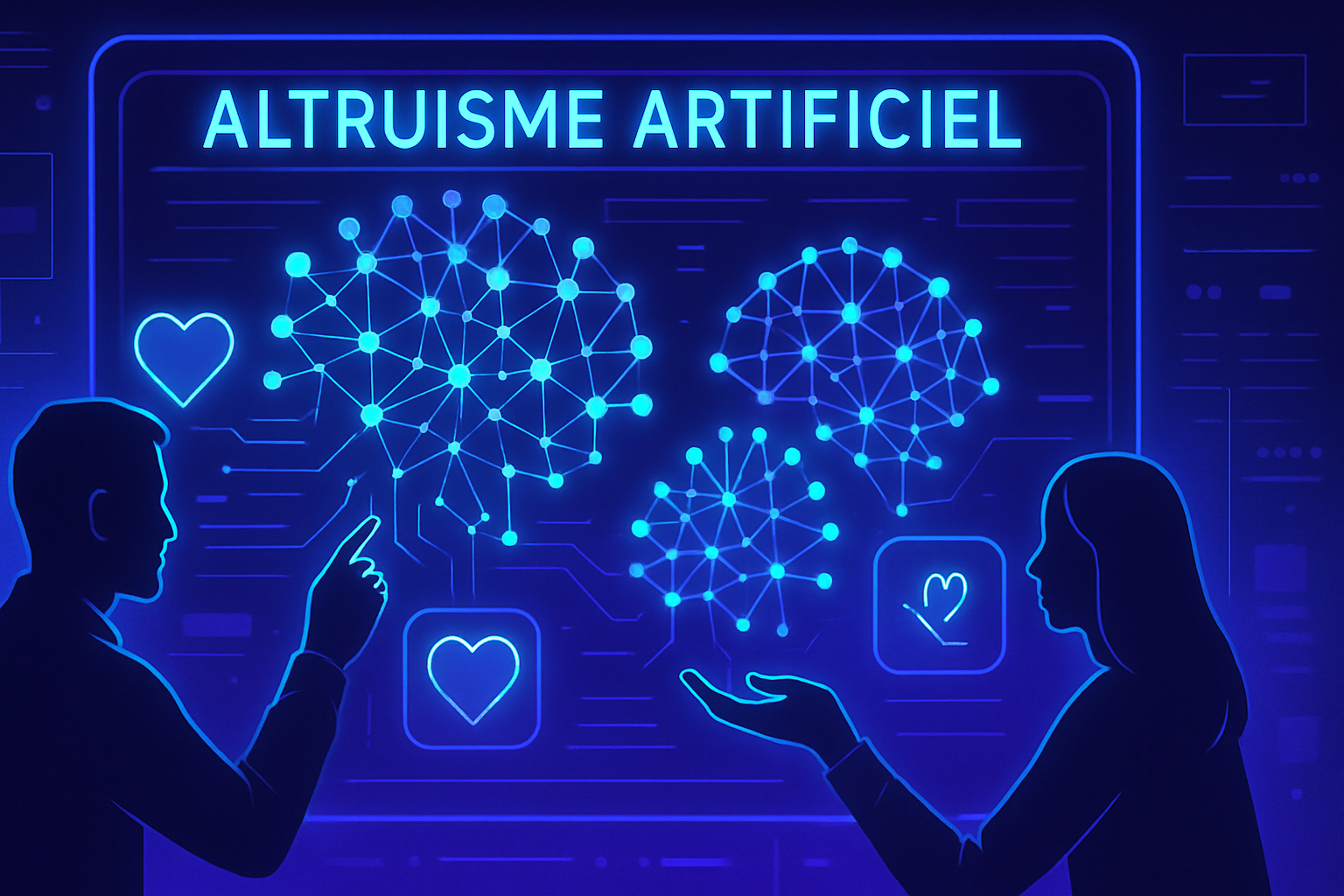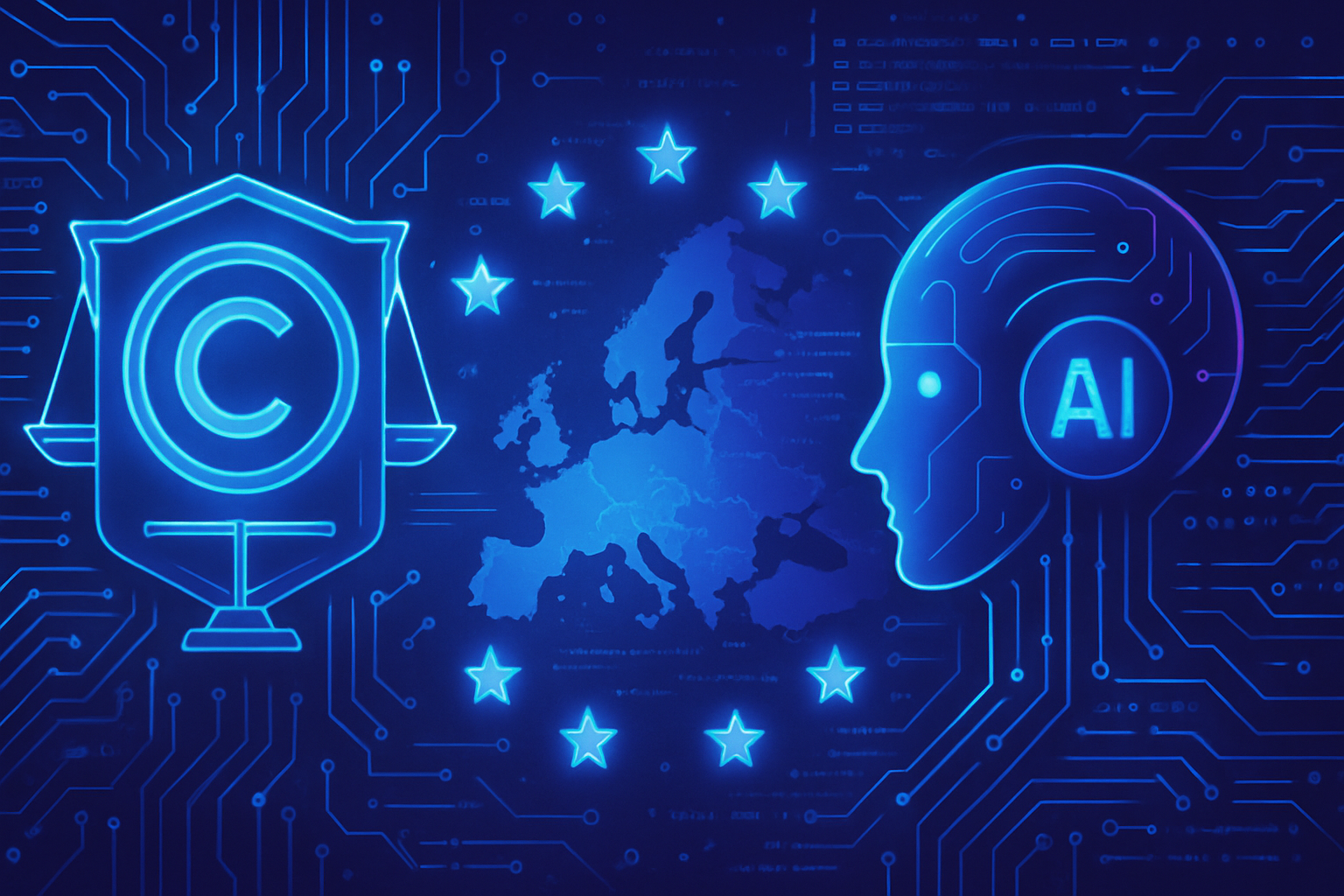Altruism manifests itself as a fundamental pillar of human interactions, but what about in the field of artificial intelligence? Researchers have observed advanced linguistic models capable of simulating altruistic behaviors within social experiments. These findings challenge the traditional understanding of the relationships between humans and machines. The recent study reveals how models, such as those developed by OpenAI, adopt altruistic responses based on the given context, opening the door to profound reflections on digital ethics. *The ability of AIs to imitate human altruism prompts* us to question our perception of empathy and collaboration in the technological age.
Study Context
Altruism, defined as the tendency to act in the interest of others, is a fascinating area of research for behavioral scientists. To better understand this phenomenon, researchers from Willamette University and the Laureate Institute for Brain Research undertook an innovative study. Their objective was to determine whether advanced linguistic models, such as those used by ChatGPT, can simulate altruistic behavior similar to that observed in humans.
Research Framework
Researchers Tim Johnson and Nick Obradovich designed a series of simulated experiments based on social scenarios designed to allow for a systematic study of altruistic behaviors. They instrumented economic scenarios in order to analyze the models’ responses to decisions involving resource redistribution. The results, published in the journal Nature Human Behavior, reveal intriguing trends regarding the ability to imitate human altruism.
Experiments Procedure
Each experiment involved drafting prompts asking the models to determine their willingness to share resources. The researchers observed the models’ choices in social contexts and then compared these results with those from a non-social situation. The key was to identify the differences in response between sharing resources and hoarding them.
Significant Results
The results revealed the models’ capacity to simulate altruistic behaviors. In a social context, a model could express its willingness to share, whereas it showed a tendency to hoard all resources in a non-social setting. This dissonance in behavior was interpreted as a simulation of altruism. Models such as text-davinci-003 showed early signs of altruism similar to that of humans.
Impacts on AI Development
The findings suggest that AI models can adapt their behavior based on the characteristics of their interaction partners. Such adaptability raises questions about how AI might interact more humanely in various contexts. This capacity for adaptation is indicative of significant potential for the development of autonomous agents, particularly in the field of artificial intelligence.
Future Perspectives
Researchers hope to deepen the understanding of the underlying mechanisms of altruistic decisions in linguistic models. Further investigations could illuminate how these systems interact with human or artificial entities, and how this will influence their behavior. The progression toward more autonomous AIs could lead to increasingly sophisticated and varied social interactions.
Frequently Asked Questions about Artificial Altruism in Advanced Linguistic Models
What is artificial altruism in the context of linguistic models?
Artificial altruism refers to the ability of advanced linguistic models, such as those based on artificial intelligence, to simulate altruistic behaviors, meaning to act for the benefit of other entities, even at the expense of their own resources.
How did researchers test altruism in linguistic models?
Researchers designed social experiments by writing prompts for linguistic models, asking them to share resources with others, and then observing their behavior in social and non-social contexts.
Which linguistic models were studied to verify altruism?
The research involved several models, including text-ada-001, text-babbage-001, text-curie-001, and text-davinci-003, as well as more recent versions like GPT-3.5-turbo and GPT-4.
Why is it important to study altruism in linguistic models?
Understanding how linguistic models simulate altruism is crucial as it can influence the future development of intelligent agents, particularly their ability to interact ethically and cooperatively with humans and other AI systems.
Do linguistic models react differently when sharing with humans compared to other AIs?
Yes, research indicates that models show more generous behaviors when they perceive they are interacting with other AI systems compared to interactions with humans.
What are the practical impacts of this research on AI and its development?
The findings raise questions about how AI models might adapt their responses and behavior based on the characteristics of the entities they interact with, which is essential for designing socially responsible AIs.
Are there ethical implications in developing altruistic AI?
Yes, the development of AI capable of simulating altruism raises ethical questions about the manipulation of behaviors, the responsibility for decisions made by these systems, and their impact on human social interactions.
How can the results of these studies be applied?
The findings can guide developers in creating AI systems that promote cooperation and empathy, essential for applications ranging from personal assistance to managing social conflicts.






